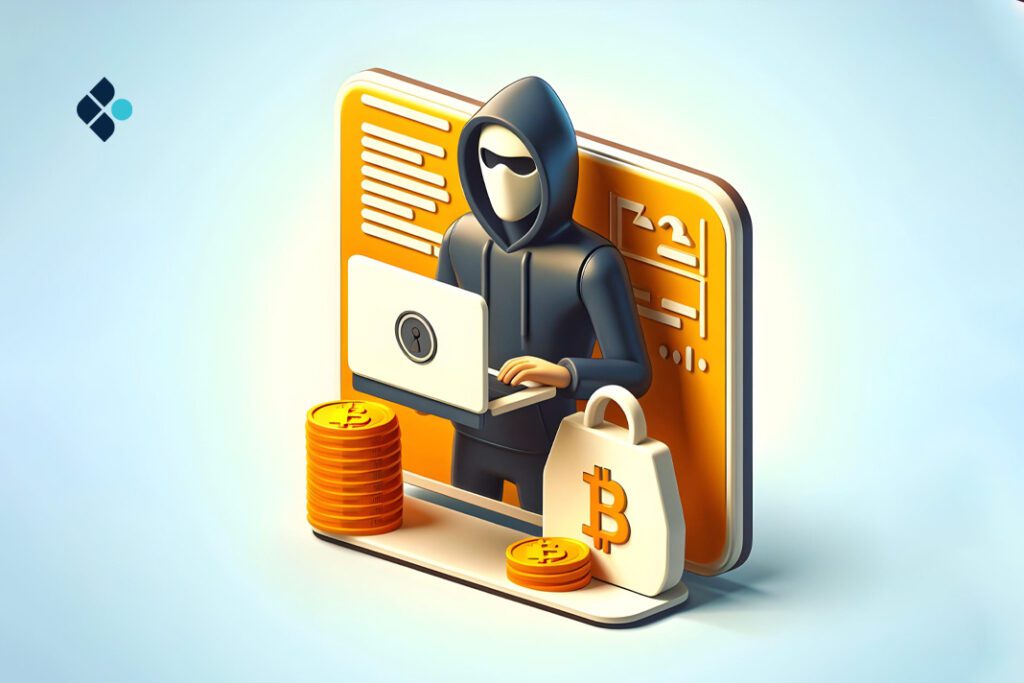In the world of cryptocurrency, scams can be as flashy as the riches they promise. Among them, OneCoin stands out—not as a revolutionary digital currency, but as one of the biggest frauds in crypto history.
Launched in 2014 by Ruja Ignatova and Sebastian Greenwood, OneCoin lured investors with grand promises of becoming the next Bitcoin. But behind the hype, there was no blockchain, no real transactions—just a $4 billion deception that left countless victims in financial ruin.
Over the years, several crypto scams have drained billions from unsuspecting investors, and in this article, we will examine the biggest crypto scams in the world, looking at how they operate, their impact, and what investors should look out for when investing in a cryptocurrency.
The Rise of OneCoin (2014-2016)
Ruja Ignatova, famously known as the “Cryptoqueen,” was a German citizen born in Bulgaria to an engineer father and a teacher mother. She earned a European law degree from Oxford University and later worked at McKinsey & Company, where she built a reputation as a financial expert.
In 2014, Ignatova launched OneCoin, claiming it was a new digital currency that could be mined, traded, and used for payments. Investors were drawn in by grand promises of financial freedom, with the company aggressively marketing its “educational materials” on crypto trading and investing.
The Unraveling: A Fake Blockchain & Fraudulent Transactions (2016-2017)
As OneCoin’s popularity grew, major red flags began to surface. Unlike Bitcoin or Ethereum, which operate on verifiable blockchains, OneCoin faked transactions using a centralised database, giving investors the illusion of activity without actual mining or public verification.
By early 2016, OneCoin members faced withdrawal issues. In March, Norway’s Direct Selling Association labeled it a pyramid scheme, and Hungary’s Central Bank issued a warning. The company also falsely claimed a government license in Vietnam, which officials swiftly debunked, further sinking its credibility.
The Aftermath: OneCoin Collapse (2017-Present)
By 2017, multiple law enforcement agencies had launched investigations into OneCoin. Then, in October 2017, Ruja Ignatova vanished without a trace.
Her brother, Konstantin Ignatov, took over the company, but by 2018, co-founder Sebastian Greenwood was arrested. In 2019, Konstantin was also arrested in the U.S., pleading guilty to fraud and money laundering. Meanwhile, Ruja remains missing, and the FBI has placed her on its Most Wanted List, offering a $100,000 reward for information leading to her arrest.
How OneCoin’s Scam Shaped Crypto & Regulations
OneCoin fuelled the narrative that crypto is just a scam, making investors wary of legitimate blockchain projects. Many still hesitate to invest in digital assets, especially in developing markets, slowing crypto adoption.
Governments also cracked down on crypto exchanges, Initial Coin Offerings (ICOs), and multi-level marketing (MLM) schemes in response to OneCoin’s fraud. Countries like the U.S., U.K., and Germany introduced stricter AML (Anti-Money Laundering) and consumer protection laws for crypto-related businesses.
A major shift was the mandatory enforcement of KYC (Know Your Customer) and AML protocols across major exchanges. Now, most platforms require identity verification before users can trade, making it harder for Ponzi schemes to thrive.
Signs Investors Should Look Out for When Investing in a Cryptocurrency

1. The company trades crypto but is not registered as a money service business:
The Corporate Affairs Commission is set up to register all types of businesses, including money service businesses in Nigeria, and they are also regulated by the Securities and Exchange Commission. You can visit the Financial Crimes Enforcement Network to see if that particular cryptocurrency is registered. This sign isn’t all-encompassing, but most scams involve unregistered entities, people, and products.
2. No physical address:
If a cryptocurrency or forex trading platform doesn’t give you a company address, it clearly shows that the site’s owners don’t want you to know where they are located. On the other hand, if there is an address, do a Google/Apple map search to see if the address is real and looks like a legitimate place of business. You might also want to avoid companies that don’t have a U.S. headquarters. If the trading platform is offshore, know you may have little or no protections if something were to go wrong.
3. The website’s age doesn’t match its claims.
Start by looking up domain registrations in a registration data lookup tool. You can determine the creation date of the web address from the results. You may tell it’s a fraud if the company says it has been operating for a number of years, yet the domain registration was only made a few weeks ago. It is highly unlikely that other trading platforms with millions of users or billion-dollar transaction volume would make such promises if they were just a few weeks or months old.
Additionally, you should avoid websites that don’t finish with dot-com or sound similar to other well-known businesses.
4. Winner of awards you’ve probably never heard of:
Scam websites frequently display badges and prizes that proclaim “Best Site,” “Customer Satisfaction,” or something cliched in an attempt to establish credibility. Don’t trust them if you’ve never heard of the awards and it’s not clear who presented them.
5. Lack of Financial Management:
To evaluate the company’s approach to financial management, you have to examine its finances in detail. Some things you should note include excessive cash outflows without a clear route to profitability and a lack of financial discipline. You also have to examine the startup’s revenue estimates closely to make sure they are both realistic and reasonable.
Frequently Asked Questions (FAQs) About The OneCoin Scam
Is the OneCoin founder in prison?
Karl Sebastian Greenwood, the co-founder of OneCoin, was sentenced to 20 years in prison for orchestrating the massive OneCoin fraud scheme. However, Ruja Ignatova, his co-founder, is still a fugitive after disappearing seven years ago.
Is OneCoin still operating?
No, OneCoin is no longer active. The company was shut down in January 2017 after widespread investigations exposed it as a fraudulent Ponzi scheme.
How did OneCoin differ from legitimate cryptocurrencies?
Unlike Bitcoin, Ethereum, or any real cryptocurrency, OneCoin never had a verifiable blockchain. Instead, it had a centralised database that simulated transactions without actual mining or decentralisation. This meant that users had no real ownership of their coins.
What happened to the money invested in OneCoin?
OneCoin defrauded investors of over $4 billion, making it one of the biggest financial scams in history. And while authorities seized some assets linked to the scam, the majority of the stolen funds remain unaccounted for.
Can I sell my OneCoin?
You can’t. OneCoin was a digital currency scheme widely recognised as a fraudulent Ponzi scheme.
What Are the Biggest Crypto Ponzi Schemes?
Apart from the OneCoin Ponzi Scheme, some of the biggest crypto Ponzi schemes include Bitconnect, PlusToken, GainBitcoin, and Mining Max.
How much is OneCoin right now?
OneCoin cryptocurrency is no longer active because the company has been shut down. This makes its price $0.00, and its trading volume is $0. Also, its current market capitalisation is $0 and it ranks #16033 on the market.
Conclusion
This article on OneCoin crypto scams shows fraudsters feasting on people’s lack of crypto and blockchain education. That’s why it is advisable to carry out due diligence whenever you are faced with a crypto investment opportunity, no matter how reputable you may think the company pitching is. Be sure to exercise due caution, as it is the best way to spot red flags and ensure you don’t fall prey to cryptocurrency investment scams.
